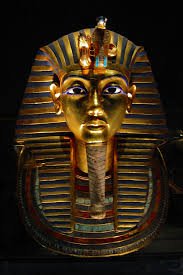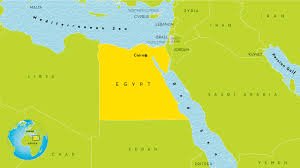STORY TIME: A TALE OF THE EGYPTIAN VAMPIRES (I)
Story Time: a Tale of the Egyptian vampires

Ladies and gentlemen!
It’s time to light up our analytical lantern and march forth to sit under the tree of intelligence whose leaves gingerly drop with rationality and gentility, providing a secure and serene atmosphere where stories are related, lessons are learned, morals are taught and feelings are induced.
Herein with you is not a fable of the lions and the tortoise typical of the old African night of entertainment, but a tale of the Egyptian vampires, telling the untold story of an Egyptian Pharaoh, who would return several times in different forms after his death to continue his destructive mission, tormenting his countrymen with severe punishments.
Having fastened our seat belt in salivation for a journey through the vampiric lands and Red Seas of Egypt, then we go.
Story, story ………………… stoooooory!

One upon a time; long, long ago, there exist an Egyptian autocratic ruler. He was cruel and wicked, often cracking down on his countrymen with terror and ruthlessness. The chronicle of that tyrannical Pharaoh is well known and need not over-rehearsed. Permit me, therefore, to fast-forward the story to June 2012, when the Egyptians had a breakthrough. For the first time in history, they chose their own leader themselves in a democratic election.

Recall that the several years of the British occupation from 1882 to 1922 paid no respect to the indigenous rule. Never! Not even with the presence of a Consul-General. It was bloody confrontations, and brutal suppression of opposition that marked a better part of the 40 year spell. Not until as latter as 1906 could resistance to the British occupation gained substantial momentum with the aid of the French and the ottomans on one side as well as the “damping effect” from the World war l (1914 -1918) on the other. Recall also, that this same Egypt has been a focal point of conflicting political interests.

The strategic and geographic location of the lands and seas as connecting bridges between Africa, Asia and Europe pit the country as an international business hub as wells as invasions and battlegrounds of clashes between several political world powers. Prior to the British occupation, for example, the French had earlier conquered Egypt during the reign of Napoleon Bonaparte; the Greek did the same under Alexander the Great, the Romans did under Augustus Ceaser, ditto several ancient dynasties. In brief, Egyptians had never actually enjoyed a system of self-governance without external interference, the land has been a political booty passed from one world power to another. In fact, the 1922 declaration of independence was not any real independence per se. Historians termed it “qualified or partial independence”. This was subject to several crucial conditions that must be met. The conditions in summary clearly indicate that the British reserved the right to intervene in the Egyptian affairs at any given time.
The June 2012 election, therefore, was a historic moment in the life of the Egyptians. The mementos of that unprecedented event would forever remain in their mental diaries. The celebration was massive and grand, penetrating weirdly across the entire Middle East and beyond. Far away here in Nigeria, myself and many keen international observers couldn’t help but jubilate at the victory of the first democratically elected president of Egypt, the revered president Muhammad Morsi. Nigerian’s euphoria in the 2015 election victory of Muhammad Buhari is a joke compared to that of the Egyptians in 2012. They have just been liberated from the 30 years Pharaonic reign of Hosni Mubarak; it was rapturous and “electric” everywhere.

Unfortunately, that nirvana wouldn’t last forever. Nay! It wouldn’t even last long. President Morsi had barely lasted a year in office before the birth of another Pharaoh. On July 3 2013, after several political dramas aided by local and international conspiracies, the army chief General Abdel Fattah el-Sisi led a coalition in a “bloodless” coup to depose Muhammad Morsi from power and suspend the Egyptian constitution. Wait a minute; did I just say “bloodless”? Yes! If “bloodless” is a contronym. But how could a coup led by a “vampire” be really bloodless? The details of the calamity from the pre and post-coup massacre are stories for the later paragraphs, it would only suffice to mention here that the June 2013 coup was not only the ouster of president Morsi, it was also the overthrow of democracy, it was the expulsion of calmness and tranquility, and it was a move that brought the entire country into an all-round ruin and sabotage. Perhaps you might frown and sneer at the description of Abdel Fattah el-Sisi as a vampire, how grave could have been his sin to have warranted such a derogatory adjective? A rewind to the old story might be necessary to do the justice here.
